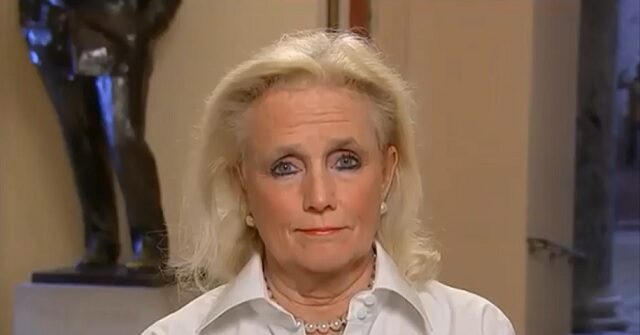During a recent interview on Fox News Channel’s “Special Report,” Rep. Debbie Dingell of Michigan addressed the contentious topic of electric vehicle (EV) adoption and its connection to consumer demand. She acknowledged the concerns about a market-driven approach to EV transition but emphasized the importance of preparing for future challenges related to climate change. Dingell argued that the automotive industry historically resisted new safety and environmental standards, such as catalytic converters and seat belts, yet these changes ultimately proved essential for consumer safety and environmental protection. Thus, she posited that while it is important for companies to understand consumer preferences, it is equally critical to ensure that the industry adapts to meet future needs driven by both progress and global climate realities.
Dingell clarified that there is no intention to ban the production of internal combustion engine vehicles, asserting that consumers still have the freedom to choose them. Nonetheless, she highlighted that the global market is increasingly leaning towards electric vehicles as part of a diverse automotive offerings. Her position is that electric vehicles should coexist with traditional vehicles within the market in order to sustain competitiveness in a rapidly evolving automotive landscape. This multifaceted approach towards vehicle production reflects broader trends in consumer preferences and regulatory demands, reinforcing the need for the U.S. automotive industry to evolve alongside international competitors.
The interview revealed a dynamic discussion on the balance between consumer choice and industry regulation. When host Bret Baier mentioned Ford’s pause on the F-150 Lightning’s production, Dingell responded by pointing out that several car manufacturers are simultaneously shutting down production lines for internal combustion vehicles. Her insights underscored the cyclical nature of the automotive industry, suggesting that market fluctuations and shifts in consumer sentiment require adaptability from manufacturers. This adaptability is crucial in ensuring that American automakers remain competitive both domestically and on the global stage, especially as more consumers express interest in sustainable transport options.
Dingell’s remarks directly challenged the notion that electric vehicle demand should solely be a matter of consumer preference. When Baier expressed concerns regarding consumer resistance to EVs, Dingell interjected with a reminder of the automotive industry’s historical reluctance to adopt safety innovations, which were ultimately successful. This historical context serves to illustrate that while consumer feedback is necessary, it should not serve as the sole determinant for industry direction. Instead, strategic foresight is essential in preparing for environmental challenges and ensuring alignment with broader regulatory frameworks aimed at reducing emissions.
As the conversation continued, Baier prompted Dingell to clarify her stance on emission standards, to which she presented an understanding that while there is a mandated direction towards emissions reduction, there exists room for flexibility based on consumer feedback. Dingell emphasized the necessity to analyze market preferences while simultaneously committing to ensuring the automotive industry is prepared for transformative changes. Her acknowledgment of an “off-ramp” suggests a willingness to adapt policies based on industry and market feedback, reinforcing her belief in a balanced approach that takes into account both consumer interests and environmental needs.
In conclusion, Dingell’s commentary reflects the evolving discourse regarding the transition to electric vehicles within the automotive industry. Her advocacy for a dual approach—where regulatory frameworks encourage innovation while allowing for consumer preferences—underlines the complexities of navigating the future of transportation amidst pressing climate issues. Ultimately, her position illustrates a commitment to not only fostering a competitive automotive market but also ensuring that future vehicle technologies are aligned with the urgent need for climate action, focusing on creating a sustainable future for all stakeholders involved.

